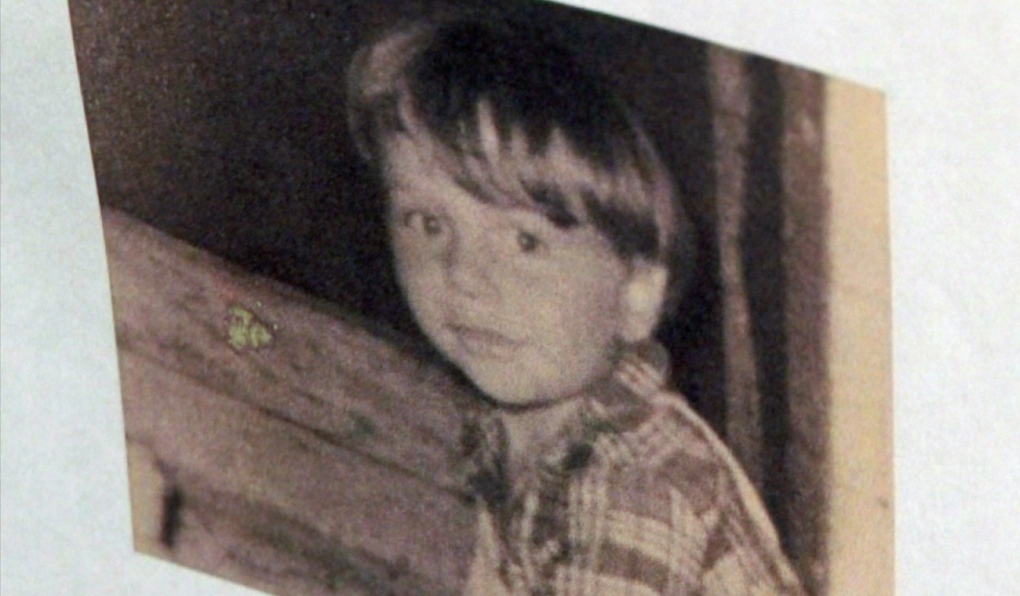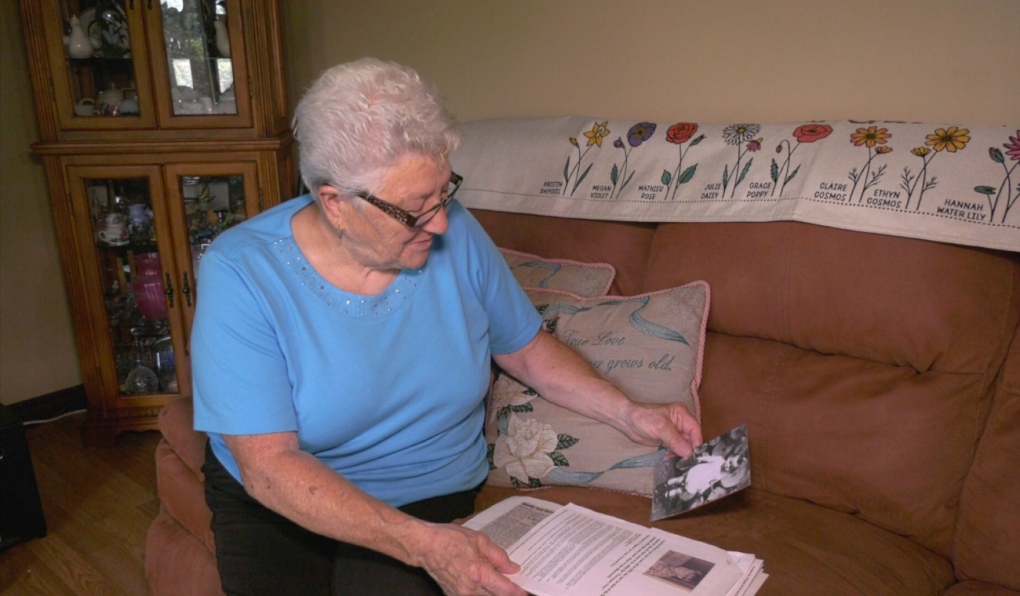Ontario has begun tracking three tick-borne illnesses, including rare Powassan Virus
Not a day goes by that Sue Cossar doesn’t miss her younger brother Lincoln Byers.
“He was an extra special little guy,” said Cossar.
Lincoln was only five-years-old in September 1958 – he was outside playing when a tick bit him near Powassan, Ont. Lincoln soon fell ill and after a consultation with a local doctor, he was rushed to the Hospital for Sick Children in Toronto.
“We were fairly close,” said Cossar.
“His temperature rose. He complained of dizziness and a headache and then he went into a coma. By the Friday, he had passed away.”
An autopsy revealed Lincoln had swelling in his brain caused by a new strain of tick-borne disease, now known as the ‘Powassan Virus.’ It was named after the northern Ontario town, near where their family lived at the time. Cossar was 10 years old when it all happened.
“We didn’t know anything like that,” she said.
“We were always around animals and always outside running around playing.”
Although still rare, reported cases of people sick from the ‘Powassan Virus’ has increased in recent years, according to the Centers for Disease Control and Prevention. ‘Powassan Virus’ belongs to a group of viruses that can cause infection of the brain (encephalitis) or the membranes around the brain and spinal cord (meningitis).
 Teri Palangio is an inspector with the North Bay Parry Sound District Health Unit Public Health. (Eric Taschner/CTV News Northern Ontario)"We are seeing that the ticks are increasing their range,” said Teri Palangio, an inspector with North Bay Parry Sound District Health Unit Public Health.
Teri Palangio is an inspector with the North Bay Parry Sound District Health Unit Public Health. (Eric Taschner/CTV News Northern Ontario)"We are seeing that the ticks are increasing their range,” said Teri Palangio, an inspector with North Bay Parry Sound District Health Unit Public Health.
“We're seeing them now where we traditionally didn't get reports of them or submissions.”
Ontario's top doctor, Dr. Kieran Moore is expecting to see a growing number of cases of three types of tick-borne illness in the province, in addition to Lyme disease. This can be directly linked to climate change, he said.
A new regulation in effect as of July 1, requires health-care providers in Ontario to report cases of three types of tick-borne illnesses: ‘Powassan Virus,’ Anaplasmosis and Babesiosis to their local medical officers of health.
“So if someone tests positive with one of these diseases in the district and if we start to see clusters, the medical officer of health and the evaluation team can look and predict where we can allocate energy," said Palangio.
There are no vaccines, medicine or specific treatment to treat the ‘Powassan Virus’ disease. Instead, patients' symptoms are managed. Anaplasmosis and Babesiosis can be treated with antibiotics for symptomatic cases.
- Download the CTV News app now and get local alerts on your device
- Get local breaking news and updates sent to your email inbox
 A black and white photo of the late Lincoln Byers, the young boy for which the 'Powassan Virus' is named. (Eric Taschner/CTV News Northern Ontario)Cossar is hoping her brother's death will highlight the need to be “tick smart” this summer.
A black and white photo of the late Lincoln Byers, the young boy for which the 'Powassan Virus' is named. (Eric Taschner/CTV News Northern Ontario)Cossar is hoping her brother's death will highlight the need to be “tick smart” this summer.
“You can pick them up so easily and not even know you have them,” she said.
The health unit said there are a number of easy tips to follow to avoid getting a tick bite:
- Wear light-coloured clothing so it's easier to see ticks along with closed-toed shoes, long-sleeved shirts, long pants or special clothing designed to repel ticks and tucked into your socks
- Use bug repellent
- Put clothes in the dryer on high heat for at least 10 minutes to kill any ticks that might be on your clothing
- Check yourself and your children for ticks after being outdoors
- Check your pets
- Maintain your property by keeping your grass mowed short and bushes trimmed
If you find you have been bitten by a tick, the health unit said it recommends using tweezers to grasp the tick as close to your skin as possible. Putt it straight out, gently but firmly. Place the insect in a container and call the health unit’s environmental program to identify it.
The health unit recommends you consult with your healthcare provider regardless if you’re showing signs of symptoms or not.
 Sue Cossar tells CTV News the 1958 story of her late brother Lincoln Byers and why it is importation to be "tick smart." (Eric Taschner/CTV News Northern Ontario)
Sue Cossar tells CTV News the 1958 story of her late brother Lincoln Byers and why it is importation to be "tick smart." (Eric Taschner/CTV News Northern Ontario)
CTVNews.ca Top Stories

opinion Tom Mulcair: Prime Minister Justin Trudeau's train wreck of a final act
In his latest column for CTVNews.ca, former NDP leader and political analyst Tom Mulcair puts a spotlight on the 'spectacular failure' of Prime Minister Justin Trudeau's final act on the political stage.
B.C. mayor gets calls from across Canada about 'crazy' plan to recruit doctors
A British Columbia community's "out-of-the-box" plan to ease its family doctor shortage by hiring physicians as city employees is sparking interest from across Canada, says Colwood Mayor Doug Kobayashi.
'There’s no support': Domestic abuse survivor shares difficulties leaving her relationship
An Edmonton woman who tried to flee an abusive relationship ended up back where she started in part due to a lack of shelter space.
opinion King Charles' Christmas: Who's in and who's out this year?
Christmas 2024 is set to be a Christmas like no other for the Royal Family, says royal commentator Afua Hagan. King Charles III has initiated the most important and significant transformation of royal Christmas celebrations in decades.
Baseball Hall of Famer Rickey Henderson dead at 65, reports say
Rickey Henderson, a Baseball Hall of Famer and Major League Baseball’s all-time stolen bases leader, is dead at 65, according to multiple reports.
Arizona third-grader saves choking friend
An Arizona third-grader is being recognized by his local fire department after saving a friend from choking.
Germans mourn the 5 killed and 200 injured in the apparent attack on a Christmas market
Germans on Saturday mourned the victims of an apparent attack in which authorities say a doctor drove into a busy outdoor Christmas market, killing five people, injuring 200 others and shaking the public’s sense of security at what would otherwise be a time of joy.
Blake Lively accuses 'It Ends With Us' director Justin Baldoni of harassment and smear campaign
Blake Lively has accused her 'It Ends With Us' director and co-star Justin Baldoni of sexual harassment on the set of the movie and a subsequent effort to “destroy' her reputation in a legal complaint.
Oysters distributed in B.C., Alberta, Ontario recalled for norovirus contamination
The Canadian Food Inspection Agency has issued a recall due to possible norovirus contamination of certain oysters distributed in British Columbia, Alberta and Ontario.

































